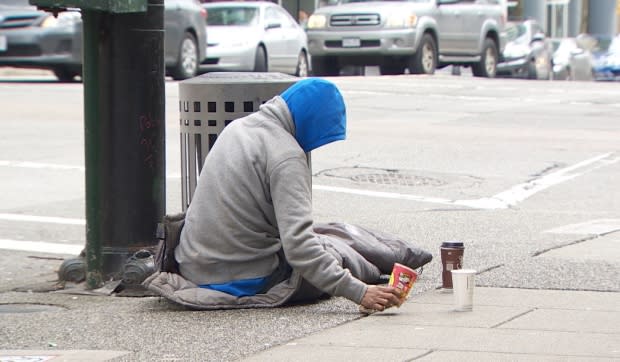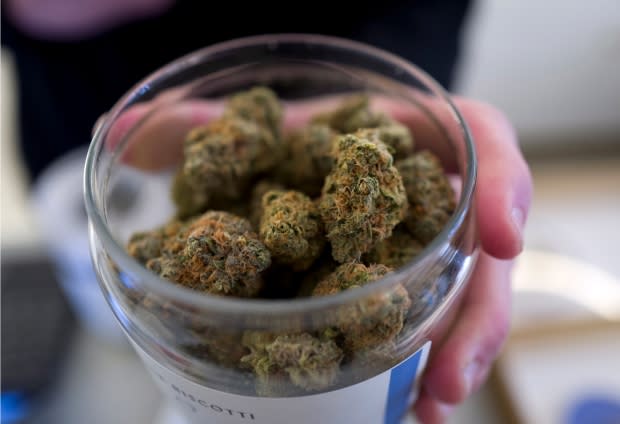Addiction experts decry ban on cannabis sales in Vancouver's Downtown Eastside
Cannabis was legalized in Canada last year, but that hasn't made it easier for people who want to buy weed on Vancouver's Downtown Eastside.
Health workers and addiction experts say new municipal rules and licensing regimes are leaving people at the epicentre of the country's opioid crisis with no legal options if they want to use cannabis, which can help them kick more dangerous drugs.
New local research has shown that cannabis use can help drug users sleep, detox and even transition to less deadly addictions.
However, the city has created an exclusion zone in the Downtown Eastside where cannabis vendors will not be granted licences. Addiction experts say this area — which extends from Richards Street to Clark Drive — is where cannabis could benefit drug users.
After cannabis was legalized in October 2018, the City of Vancouver moved to license vendors. It says 70 stores will be approved but those that are not licensed must close. As a result, the dispensaries and compassion clubs that have long operated near Main and Hastings expect to be shut down any day.
As it stands now, if a pot store is not on the Vancouver city map drawn up by municipal officials, it's not legal.
'Bad drug policy'
The exclusion zone was drawn up in 2015 alongside licensing rules for medical-cannabis dispensaries.
The idea was to keep vulnerable addicts safer, according to chief licence inspector Kathryn Holm.
But Dr. Keith Ahamad, a clinical researcher with the B.C. Centres on Substance Use, says the exclusion zone is based on politics and make no sense from a public health point of view. Vancouver's Downtown Eastside has the highest rate of overdoses in Canada.
"The current drug policy of criminalizing drug use and trying to decrease supply is obviously not working and actually worsening harm. It's literally bad drug policy," Ahamad said.

Ahamad said trying to limit the supply of pot makes no sense, and argues cannabis is an alternative to the deadly adulterated mix of chemical combinations found in powder sold on the street — often a combination of fentanyl and dangerous synthetics.
"There's a gigantic irony here that there is a reluctance to legalize and regulate drugs," he said.
"We have data locally showing that kids can get access to fentanyl within minutes. You can actually get drugs delivered to your door that will kill you faster than you can have a pizza delivered to your door."
Pot can help drug users: researcher
Front-line workers say that since legalization, access to high-quality pot has become more difficult for Vancouver's least privileged drug users. It often requires a credit card or address to buy cannabis in a licensed dispensary and people in the city's poorest neighbourhood often don't have either.

Dr. Michael John Milloy, a research scientist with the B.C. Centres on Substance Use, said pot can help drug users stay healthier because it can help them sleep.
Data also show it can help them detox and transition to less harmful drugs. His research shows daily pot users are less likely to inject, overdose or quit methadone treatment.
But Milloy said that many users in the Downtown Eastside can't benefit from legal cannabis because the dispensaries aren't located near them. Legal boutiques sell cannabis at $12 a gram, while street users can find low-grade illicit pot for $6 a gram, he said.
There is a similar exclusion zone for cannabis vendors in the Granville Entertainment District between Robson Street and Pacific Boulevard.
City spokesperson Kathryn Holm, the chief licence inspector was unavailable for an interview about the exclusion zones, but did confirm details through a communications staffer.

